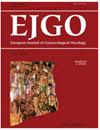Identification of immune subtypes of uterine corpus endometrial adenocarcinoma based on tumour microenvironment
IF 0.5
4区 医学
Q4 OBSTETRICS & GYNECOLOGY
引用次数: 0
Abstract
Uterine corpus endometrial adenocarcinoma is the prevalent gynaecological malig-nancy. The related morbidity and mortality are high despite the progress made in treatments. Therefore, efficient prognostic indicators and reliable predictive factors for the treatments are vital. In this study, the transcriptome and clinical data of endometrial adenocarcinoma samples were screened and downloaded from The Cancer Genome Atlas Program (TCGA) database. The relation between immune cell types and clinicopathological grade of endometrial adenocarcinoma was explored. The endometrial adenocarcinoma samples were divided into six immune subtypes based on immune microenvironment scores. The differential genes in immune subtypes were classified according to the score, and correlation enrichment analysis was made to explore the immune pathways related to prognosis and survival. They were divided into high and low risk groups according to the median risk score in order to explore the survival outcomes of the various immune scores. Finally, the relationship between tumour mutation burden, immune subtypes, and prognosis was discussed. Herein, the endometrial adenocarcinoma is classified based on immune microenvironment which demonstrates good predictive potential of immune-based classification strategy. The predicted outcomes are described for the patients at high risk of endometrial adenocarcinoma to improve the treatment strategies. Immune risk score can be used as an independent risk factor for overall survival of endometrial adenocarcinoma patients. This immune-based classification system can prognose endometrial adenocarcinoma patients at high risk.基于肿瘤微环境的子宫肌体子宫内膜腺癌免疫亚型鉴定
子宫肌体子宫内膜腺癌是常见的妇科恶性肿瘤。尽管在治疗方面取得了进展,但相关的发病率和死亡率仍然很高。因此,有效的预后指标和可靠的预测因素对治疗至关重要。本研究筛选了子宫内膜腺癌样本的转录组和临床数据,并从癌症基因组图谱计划(TCGA)数据库中下载。探讨免疫细胞类型与子宫内膜腺癌临床病理分级的关系。根据免疫微环境评分将子宫内膜腺癌样本分为6个免疫亚型。根据评分对免疫亚型中的差异基因进行分类,并进行相关富集分析,探索与预后和生存相关的免疫通路。根据中位风险评分分为高危组和低危组,探讨各免疫评分的生存结局。最后,讨论了肿瘤突变负荷、免疫亚型与预后的关系。本文基于免疫微环境对子宫内膜腺癌进行分类,显示了免疫分类策略的良好预测潜力。本文描述了子宫内膜腺癌高危患者的预测预后,以改进治疗策略。免疫风险评分可作为子宫内膜腺癌患者总生存的独立危险因素。这种基于免疫的分类系统可以预测高危子宫内膜腺癌患者。
本文章由计算机程序翻译,如有差异,请以英文原文为准。
求助全文
约1分钟内获得全文
求助全文
来源期刊
自引率
25.00%
发文量
58
审稿时长
1 months
期刊介绍:
EJGO is dedicated to publishing editorial articles in the Distinguished Expert Series and original research papers, case reports, letters to the Editor, book reviews, and newsletters. The Journal was founded in 1980 the second gynaecologic oncology hyperspecialization Journal in the world. Its aim is the diffusion of scientific, clinical and practical progress, and knowledge in female neoplastic diseases in an interdisciplinary approach among gynaecologists, oncologists, radiotherapists, surgeons, chemotherapists, pathologists, epidemiologists, and so on.

 求助内容:
求助内容: 应助结果提醒方式:
应助结果提醒方式:


